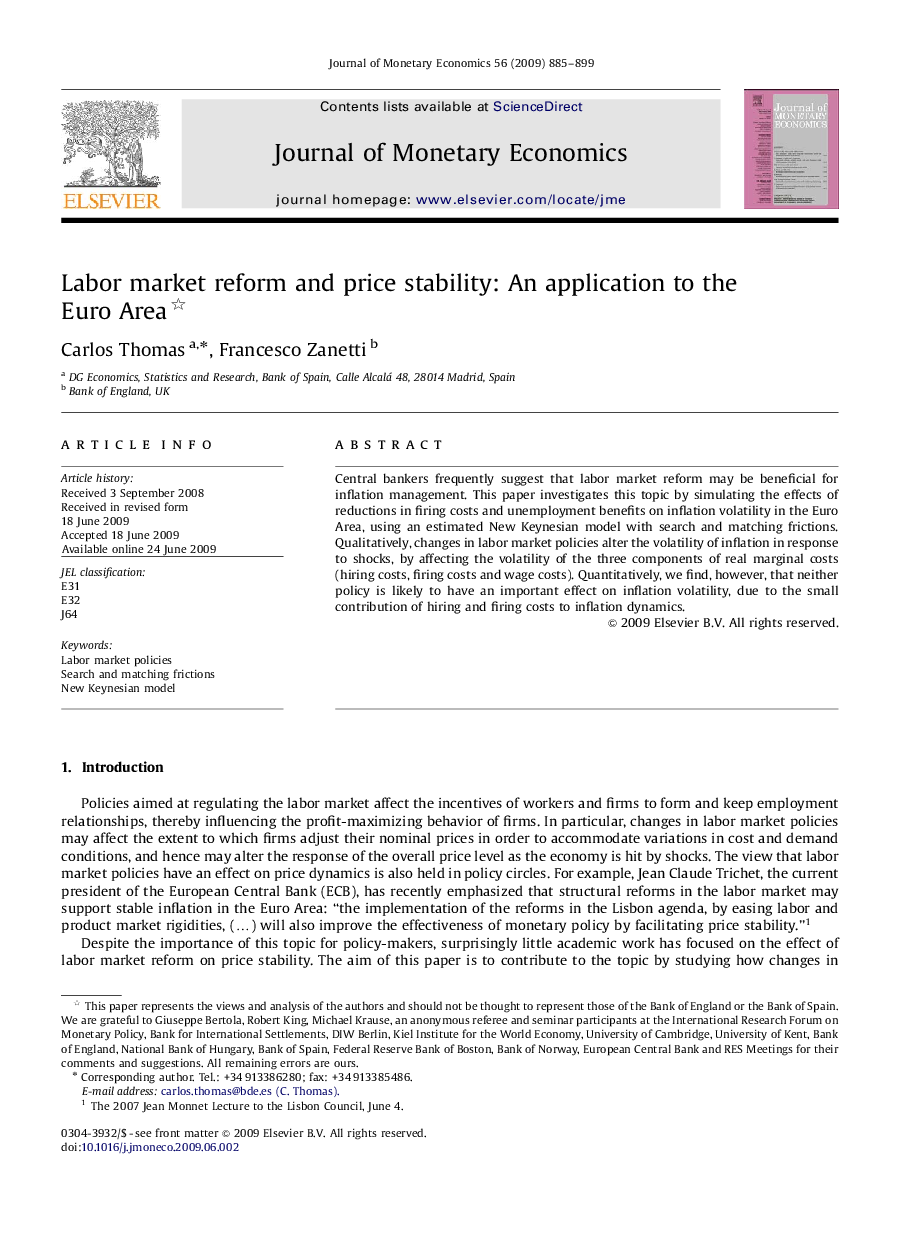| Article ID | Journal | Published Year | Pages | File Type |
|---|---|---|---|---|
| 967563 | Journal of Monetary Economics | 2009 | 15 Pages |
Central bankers frequently suggest that labor market reform may be beneficial for inflation management. This paper investigates this topic by simulating the effects of reductions in firing costs and unemployment benefits on inflation volatility in the Euro Area, using an estimated New Keynesian model with search and matching frictions. Qualitatively, changes in labor market policies alter the volatility of inflation in response to shocks, by affecting the volatility of the three components of real marginal costs (hiring costs, firing costs and wage costs). Quantitatively, we find, however, that neither policy is likely to have an important effect on inflation volatility, due to the small contribution of hiring and firing costs to inflation dynamics.
